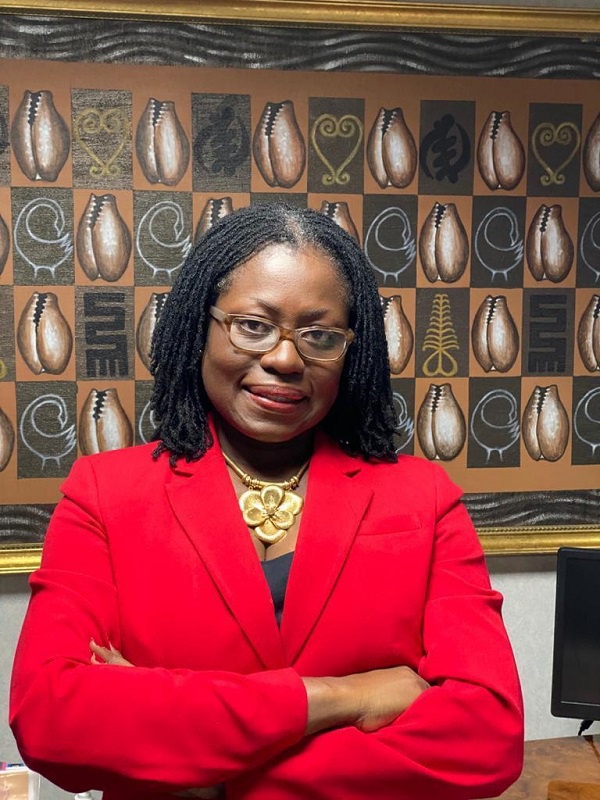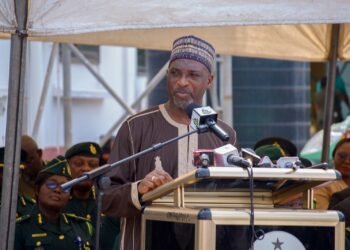Mr. Rufus Darkortey, an Executive Director of the African Development Bank (AfDB), recently visited Ghana to engage with stakeholders and explore opportunities for promoting the country’s economic recovery and inclusive growth agenda.
The Director’s visit, which lasted for five days, saw him together with his team meeting with a range of officials, including: Vice President of Ghana, Dr. Mahamudu Bawumia; Finance Minister, Ken Ofori-Atta; and the Central Bank Governor, Dr. Ernest Addison.
The team from the African Development Bank, also met with the Commissioner-General of the Ghana Revenue Authority (GRA) and the management of Development Bank Ghana (DBG).
One of the main objectives of AfDB’s mission to Ghana was to better understand Ghana’s Domestic Revenue Mobilization programme and identify gaps where the AfDB could provide support. The team also sought to familiarize themselves with some of the Bank’s ongoing projects in Ghana.
As part of the visit, the team toured the Pokuase interchange, where major construction has been completed. They also visited the Wastewater Treatment Plant at Legon, a completed and handed over project to the Sewage Department. The treated wastewater is being used for fish and vegetable farming as part of a sustainability plan.
The visit was seen as a positive step in strengthening the ties between Ghana and the AfDB and also served as an opportunity for the global lender to identify ways to support the country’s economic development.
As part of his final remarks, Mr. Darkortey indicated that:
“The AfDB is committed to working with Ghana to support its recovery and growth efforts. We see a lot of potential for collaboration and look forward to further discussions with our Ghanaian partners.”
Rufus Darkortey
The African Development Bank is committed to developments in Ghana
The African Development Bank, over the years, has supported Ghana in a number of ways and has not failed in extending its hand of support to Ghana, not even in this era where the country is in serious economic crisis.
Recently, Bank of Ghana extoled AfDB’s Affirmative Finance Action for Women in Africa (AFAWA) intiative, focused on equipping women-owned businesses to drive the country’s economy.
Second Deputy Governor of the Bank of Ghana, Elsie Addo Awadzi noted that this partnership between AFAWA, the African Guarantee Fund and the Ghana Association of Banks was timely and urgent. She added:

“We believe it will go a long way in helping our economy recover from the current macro-economic challenges it faces and indeed make it more resilient.”
Elsie Addo Awadzi
Furthermore, in November 2022, the Fund of AfDB approved a $27.9 million grant to Ghana for the development of agricultural value chains in the Savannah region.
This grant was meant to increase the climate-resilient production of maize, rice and soybean, support the poultry value chain, and generate employment for women and youth. It was also to increase the incomes of farmers and support household nutrition, especially, in more vulnerable women-headed households.
Marie Laure Akin-Olugbade, then Acting Vice-President of the AfDB Regional Development, Integration and Business Delivery Complex, said the bank’s investment into the agricultural space in Ghana was meant to build the local capacity of the country to help reduce imports and help Ghana to mitigate the negative impact of Russia’s invasion of Ukraine on global food systems.

AfDB commits to both Macro-Economic and Micro-Economic Development in Ghana
Not only is AfDB committed to growing the macro-economic space in Ghana but also its micro-economic space. In October 2022, the global lender provided financial and technical support to the Development Bank Ghana (DBG), in a strategic step to promote industrialization and private sector development in the country.
Speaking on behalf of the bank, Solomon Quaynor, AfDB Vice-President for Private Sector, Infrastructure and Industrial Complex said:

“Our strategy in Ghana as the African Development Bank includes supporting Ghana’s industrialization and private sector development.”
Solomon Quaynor
READ ALSO: Palm Oil Imports Rises Above $1billion In 3 years



















